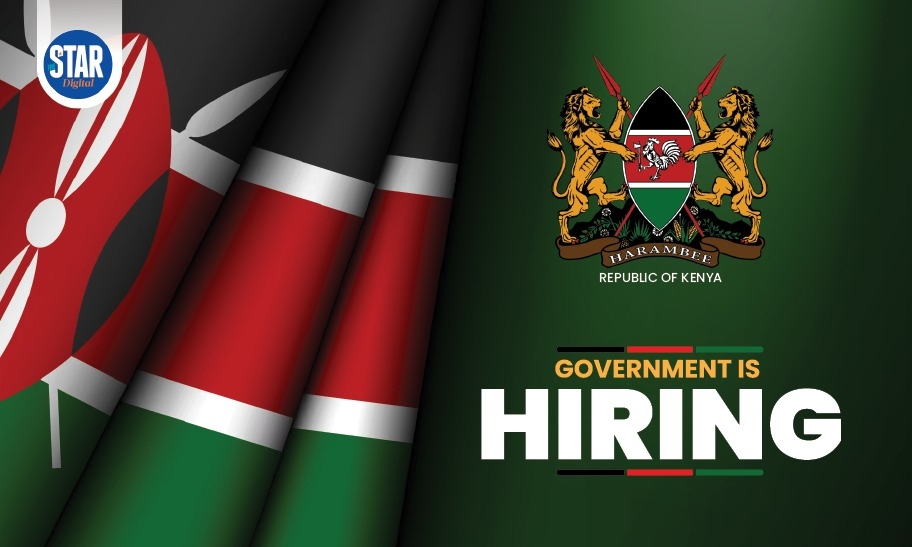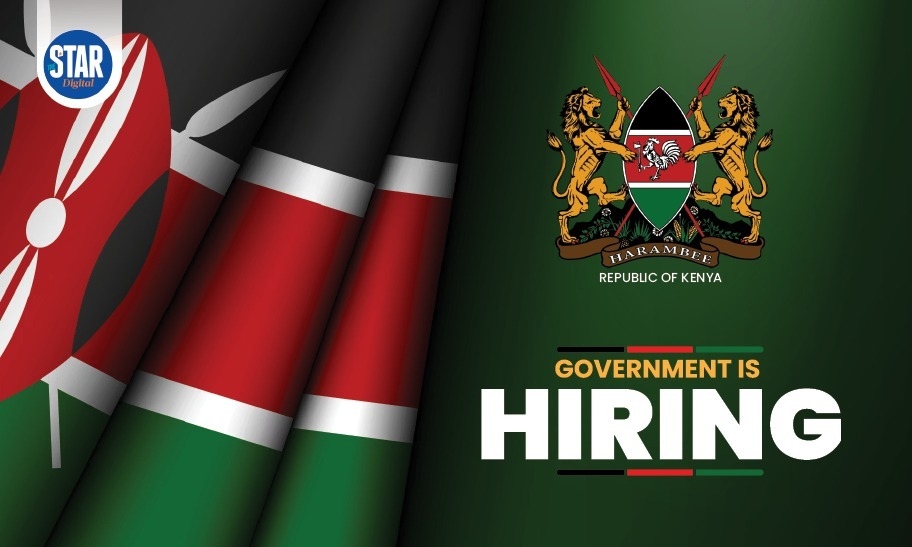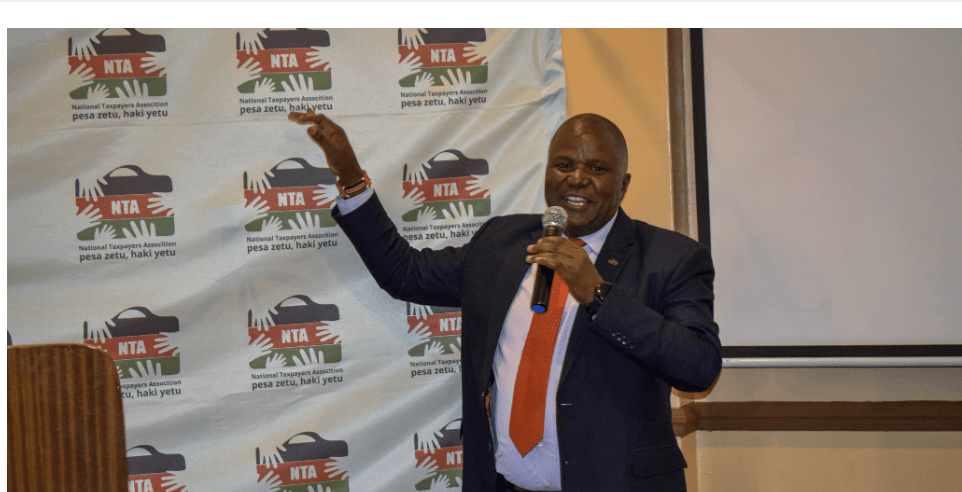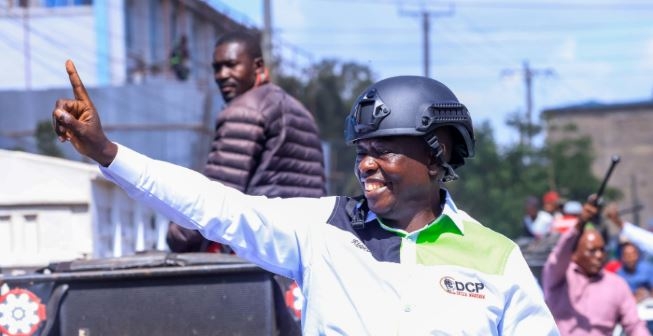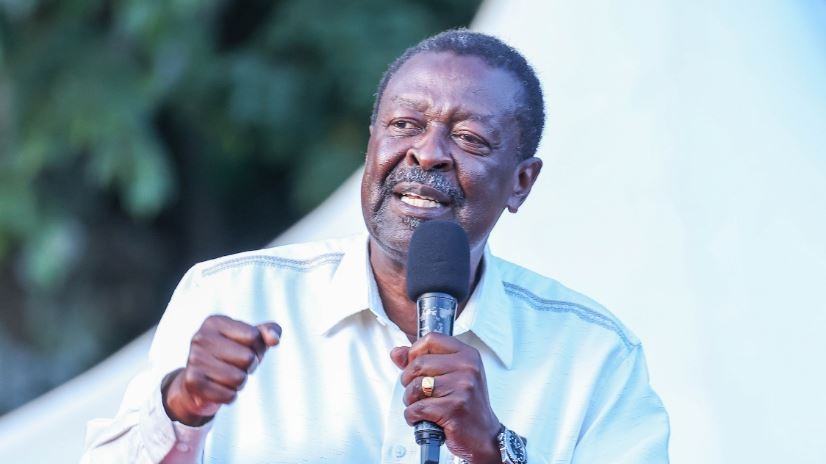
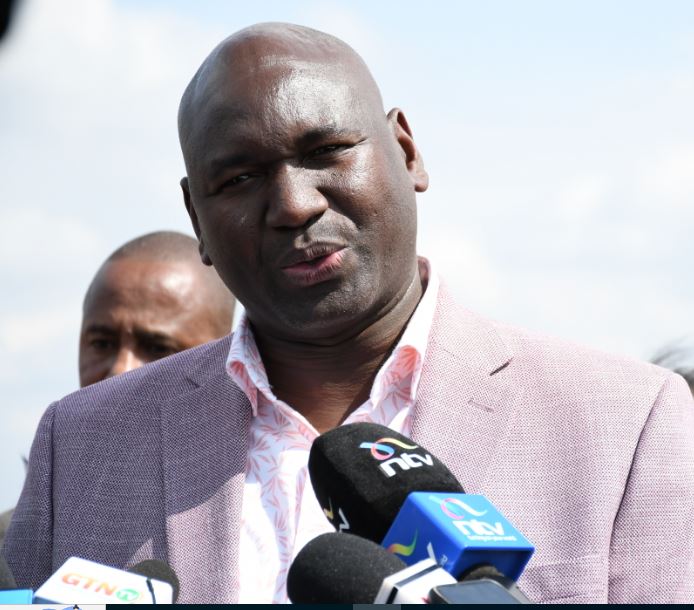 Principal Secretary in the State Department for Basic Education Dr. Julius Bitok during a press briefing at the Nyaribo airstrip in Nyeri on Friday, August 15, 2025./KNA
Principal Secretary in the State Department for Basic Education Dr. Julius Bitok during a press briefing at the Nyaribo airstrip in Nyeri on Friday, August 15, 2025./KNA
The government is mulling over converting some 3,000 secondary schools in the country operating with less than 150 learners to junior secondary schools.
The plan aims at supporting the transition of learners to Grade 7 under the Competency-Based Curriculum.
According to the Principal Secretary in the State Department for Basic Education, Dr. Julius Bitok, this would ensure a smooth transition of learners from Grade 6 to JSS, which starts in Grade 7.
The PS spoke in Nyeri on Friday when he led Principal Secretaries Dr. Esther Muoria and Dr. Caroline Karugu to assess the progress of preparations for the National Music Festival state concert, which is taking place at the Sagana State Lodge on Saturday, 16, and Sunday, 17 August.
He noted that if the conversion is endorsed, the government would not only bridge the access gap and ensure learners benefit from a conducive learning environment but it would also cut back of the financial resources that the state would have otherwise spent on expanding school infrastructure.
The PS said that the move would also maximise the utilisation of essential facilities such classrooms and laboratories, in the under-enrolled schools.
“As a government, we are not going to close these schools. Instead, we will convert them to junior secondary schools. This is a suggestion we have received. As a government, we are yet to decide on whether to endorse the suggestion or not. We want to get the views of all stakeholders,, including the church, the citizens about this proposal. We want all the people to sit down and give us a way forward,” said the PS
Dr. Bitok has at the same time ruled out the possibility of shutting down the schools.
He said that the government was still in the process of collecting views from stakeholders who include the clergy, on the best way to address the under-enrollment in the said schools.
According to the PS, the most suitable solution is one that would ensure proper utilisation of resources to the benefit of the learners.
“For now, there is no such plan of closing down schools. All we are saying is let us have a dialogue in each county and sub-county and assess whether they have too many schools so that we ensure we optimise the utilization of the resources in our schools,” said Dr. Bitok.
The PS also reiterated the government’s commitment to ensuring the full implementation of the free primary and free day secondary school education policy.
While acknowledging the frequent delays in releasing capitation to schools, the PS stated that his ministry is negotiating with the Exchequer to address the stalemate that is threatening to destabilise education for some 12.6 million learners in the country.
“The government is committed to the policy of free primary and free day secondary school education. We are doing everything possible; we are negotiating with the National Treasury to ensure that the entire amount of money allocated for capitation gets to our schools,” he said.








